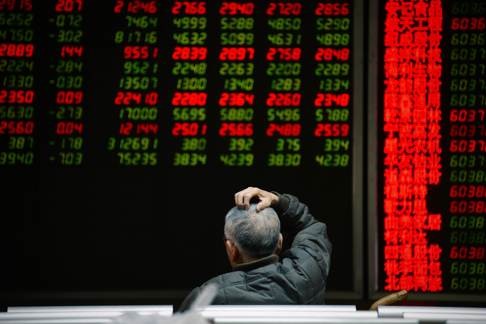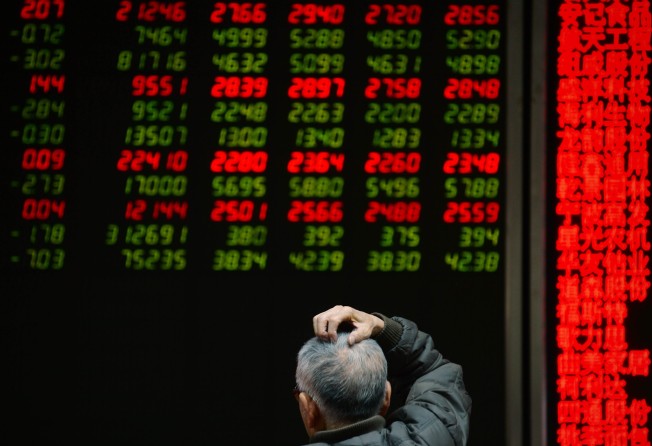
Shanghai Composite crashes into bear market territory, while Hong Kong stocks rack up third week of losses
Shanghai Composite closes the week on downbeat note, shedding 3.6pc, or more than 20pc down from its recent high, technically entering into a bear market

China markets plunged into bear market territory Friday afternoon, while Hong Kong markets also closed lower as investor sentiment soured amid volatility in the Chinese currency and concerns over the economic outlook.
The mainland’s benchmark Shanghai Composite Index shed 3.6 per cent or 106.68 points Friday to finish at 2,900.97. The close, its lowest finish since December 2014, reflects a 20 per cent drop from a high on December 22, matching the technical criteria for a bear market. The index has fallen by 18 per cent this year, and is down 44 per cent from last year’s peak in June.
Meanwhile, the Shenzhen Composite Index finished at 1,796.13, down 3.4 per cent, or 63.24 points, for a weekly loss of 9.2 per cent. The ChiNext slid 2.9 per cent or 62.11 points to 2,112.90.
“Fear dominated the first two weeks,” said Bernard Aw, an analyst from IG Group. The declines were triggered by the sell-off in Chinese markets and fears of further yuan devaluation, he said.

Moving forward, traders will closely watch a number of key data for economic clues, including China’s fourth quarter data and full year GDP, US housing and CPI data, and quarterly financial results of major US corporations, Aw added.
Louis Tse Ming-kwong, Director of VC Brokerage, said that Friday’s fall can also be attributed to skittish investor sentiment from the expiration of futures contracts and a lack of support from the central government in contrast to Thursday.
“They discreetly bought up the market (on Thursday) but without that support today...investors just want to recoup their money,” Tse said. “Towards the Lunar New Year people also want to sell and grab their money.”
Hong Kong markets also finished in the red, with the Hong Kong dollar dropping further from the previous day’s close. On Thursday, the currency hit a four-year low during the trading session.
The Hang Seng Index closed at 19,520.77, down 1.50 per cent or 296.64 points, and posted a weekly loss of 4.60 per cent. This year, the benchmark plunged 11 per cent, more than last year’s annual loss of 7.2 per cent.
The Hang Seng China Enterprises Index index closed at 8,236.28, shedding 2.64 per cent or 223.35 points from the previous day’s close, and saw a weekly decline of 6.89 per cent.
“The Hong Kong dollar is testing the peak level...which means that money is going out from Hong Kong,” Tse said, adding that he expects the declines to continue and the turnover to become smaller leading up to the Lunar New Year in early February.
Software and services, insurance and agricultural products were among the industries leading the afternoon’s losses, each falling by over 2.6 per cent on average, while the telecommunications sub index gained 0.75 per cent.
The top 20 stocks with the highest turnover all dropped, with Tencent losing 0.07 per cent to HK$137, China Construction Bank falling about 1.87 per cent to HK$4.73, Ping An shedding about 3.31 per cent to HK$35.10 and Bank of China dropping 2.3 per cent to HK$3.04.
“The end of the week in Asia has seen emerging markets record their third weekly loss in a row. 2015 so far has been a terrible year for global stock markets,” said Simon Smith, chief economist at FxPro in London. “This is now starting to be reflected in profit forecasts for S&P companies across the pond where we’re seeing the most downgrades to earnings compared to upgrades since 2009.”